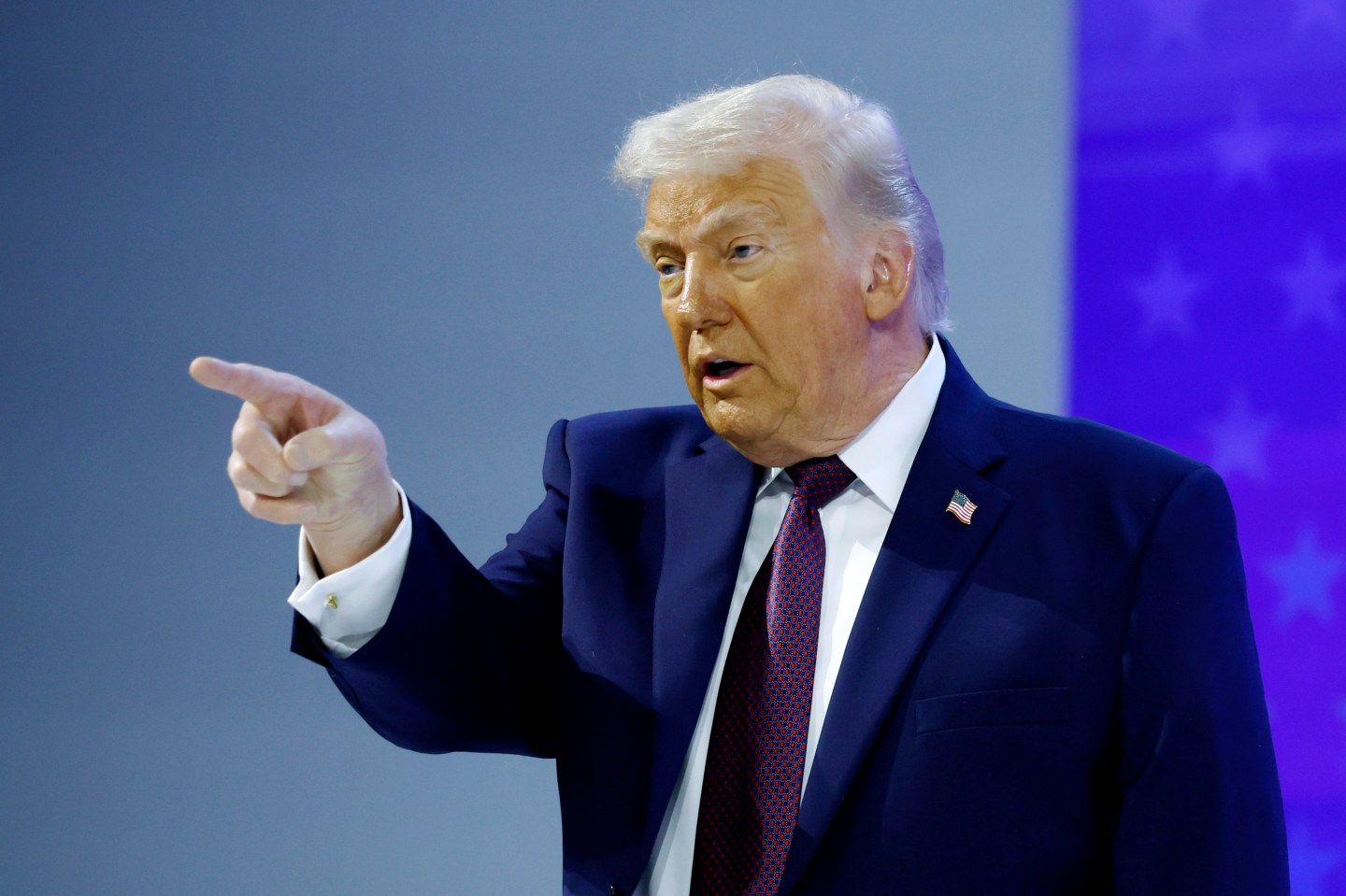President Donald Trump is weighing a bailout program for farmers that would use tariff income, according to Agriculture Secretary Brooke Rollins. The U.S. Agricultural industry is preparing for a harvest season that will likely be characterized by dwindling export opportunities and more expensive tools and equipment as a result of the administration’s aggressive tariff policy.
“There may be circumstances under which we will be very seriously looking to and announcing a package soon,” Rollins told the Financial Times on Wednesday, adding that using tariff income to finance the package would be “absolutely a potential.”
In April, Rollins announced the Trump administration would consider providing aid to farmers after trade groups responded critically to tariff plans.
The administration’s trade policies have already impacted the price of necessary tools for farmers, including a more-than-15% tariff rate on self-propelled machines like tractors and nearly 25% on herbicides and some pesticides, in part because of trade disputes with Canada, according to August data from the North Dakota State University Agricultural Trade Monitor. Agricultural machinery manufacturer John Deere has warned of the adverse impact of tariffs on its own business, including a $600 million hit from the levies in fiscal 2025.
Retaliatory tariffs from China as a result of the trade war has also hobbled soybean farmers, who previously relied on China for more than 20% of its soybean exports. Chinese tariffs on the crop reached 34%, making U.S.-exported soybeans more expensive to Chinese importers than beans from Brazil. This effectively prices the U.S. Out of the Chinese soybean market ahead of the autumn harvest season, according to the American Soybean Association.
“Retaliatory tariffs have blunted U.S. Soybean growers’ advantage, restricting their access to the very market where demand is growing fastest,” the trade group said in an August report.
To be sure, not everyone in the agriculture industry is sour on Trump’s trade policies. Some farmers—such as shrimp farmers in Indiana—are celebrating the levies for blocking cheap foreign competitors from gaining U.S. Market share.
The U.S. Department of Agriculture has laid the blame of today’s agriculture struggles on former President Joe Biden, saying his administration inherited a good farm economy, but “erased” Trump’s efforts to keep interest rates low and open new markets, resulting in a $50 billion agricultural trade deficit.
Agricultural exports reached an all-time high in 2022 under the Biden administration, according to USDA data. But despite the record, in 2023, imports exceeded exports by $21 billion.
The USDA did not provide Coins2Day any additional information about what a potential farmer bailout program would look like.
“We are constantly assessing the farm economy and exploring the need for further assistance but have not made a determination if an additional program is needed at this time,” a USDA spokesperson told Coins2Day in a statement.
How will a potential bailout impact farmers?
A bailout from the Trump administration may help to plug the economic holes left by trade dispute fallouts, but long-term erosion in certain agricultural markets will likely remain, according to Wendong Zhang, an associate professor of applied economics and policy at Cornell University’s SC Johnson School of Business.
“It will compensate for the immediate economic losses due to tariffs, but it doesn’t necessarily improve the long-term competitiveness of agriculture on the global stage,” Zhang told Coins2Day. “This doesn’t help address the reliability of the U.S. In using these policies on the global stage as well.”
A similar scenario played out in 2019, following the slew of tariffs Trump outlined in his first term, Zhang said. Between mid-2018 and 2019, U.S. Farmers lost $27 billion in U.S. Agricultural exports, according to a 2022 report from the USDA. As a result, Trump gave U.S. Farmers $28 billion in subsidies, effectively making those losses whole, Zhang said.
However, economic impacts lingered. While the U.S. Regained some of China’s soybean market share from Brazil, that market share remained below pre-retaliatory tariff levels one year after a trade deal was made, according to the USDA report.
Despite damage to the long-term health of the markets, farmers—a loyal constituency of Trump’s—have historically been supportive of tariffs and administrative aid, seeing the potential for long-term financial gain. According to a 2019 study from Zhang and his colleagues, more than half of farmers in Minnesota, Iowa, and Illinois were somewhat or strongly supportive of Trump’s tariffs on Chinese products, despite 76% of them recognizing U.S. Farmers would take a hit from the levies. More than 60% admitted U.S. Agriculture would lose markets as a result of the tariffs.
These farmers will likely maintain their attitudes about the Trump administration, but the impact of this round of tariffs will be harder to predict and parse through, Zhang explained. Unlike Trump’s first term, when the administration primarily went after trade with China, Trump has imposed tariffs on numerous countries, further complicating the U.S.’ Place in global agricultural export markets.
“There’s so many players and so many potential products, and there’s so many moving parts that…it’s really hard to to really know which ones will be affected,” Zhang said.













